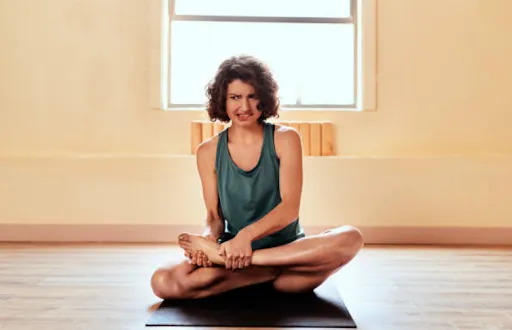You would not wear pants that are 1-2 sizes too small, or put on gloves with holes in them. You certainly wouldn’t wear high heels to go on a long hike. So why aren’t we choosing the correct shoes to wear for inside and outside activities?
Your feet play a very important part of supporting your body weight, and sustaining the impact of standing, walking, running and everything else that you do throughout the day. When your feet don’t get the support it needs, it can lead to issues like blisters, bony bumps on your feet called bunions, hammertoes, shin splints, knee pain and even back pain.
How Do Shoes Have Anything To do with Impact on Knees and Low Back?
Shoes and how they support your feet impact how you are loading your joints (distributing your body weight) especially your knees. Heel height may be important distinguishing characteristics of shoes and how it affects knee loads. Studies have suggested that high-heeled or even moderately high heeled shoes increase the joint load in healthy women. A common shoe type that is known for causing back pain and knee pain are the notorious high heeled shoes. High heeled shoes affect the natural c-shaped curve (lumbar curve) in your lower back and shifts your weight forward ultimately leading to pain and even instability in the knees up to your low back.
The Perfect Fit
Since the majority if not all of us know our general shoe size after it’s been told to us once and the typical thing to do is to just look for shoes in that size. Many people wear shoes that are incorrect sizes which negatively affects feet and posture. That’s why it’s beneficial to have your feet measured before buying shoes to make sure you are grabbing the correct size for you! This is super important because our feet may change sizes as we age.
How Can My Shoes Benefit Me the Most?
If you’re on your feet all day, try picking shoes that have more shock absorption and can provide more stability for your feet. However, if you’re sitting at a desk for the majority of the day, you may be an exception.
All About that Arch!
If you buy shoes that aren’t compatible with your arch, you’re going to end up in pain. If the shoe that you need isn’t good for YOUR foot, then foot inserts are highly recommended. Evidence has shown that custom orthotic insoles and specialized footwear may help to modify how you activate your muscles when walking by reducing the load on the joints of the lower extremities, which ultimately helps to reduce foot pain and minimize injury. I would consider shoe inserts an investment as they can ultimately save you from knee and back pain and highly recommend visiting stores that specialize in shoes and fitting to find out what is best for you.

Is Being Barefoot at Home Healthy?
According to Dr. Cunha, founder of Gotham Footcare, there are some benefits to being barefoot including added circulation and decreased inflammation. However, he also explains that when we’re not wearing shoes, pressure and weight are distributed and altered across our feet and the imbalances may increase underlying foot deformities like bunions and hammertoes. For those who have flat feet, tendonitis, shin splints, and even knees and back pain can occur. Therefore, it would be wise to wear shoes indoors. The most common type of shoes to wear around the house are slippers! So, make sure you pick ones that have good cushioning and support.
Now, the question is how do I know what shoes are perfect for me? The best way to find out is by visiting your physical therapist! Physical therapists are musculoskeletal experts and can help you make the right choice in shoes based on your activity levels, height, weight, walking, running gait, personal style, anatomy, etc. Call us today if you are experiencing any type of persisting foot/ankle/knee or back pain. You don’t need to feel uncomfortable anymore, you can live your active lifestyle again. Call us to evaluate: 281-888-0047.

